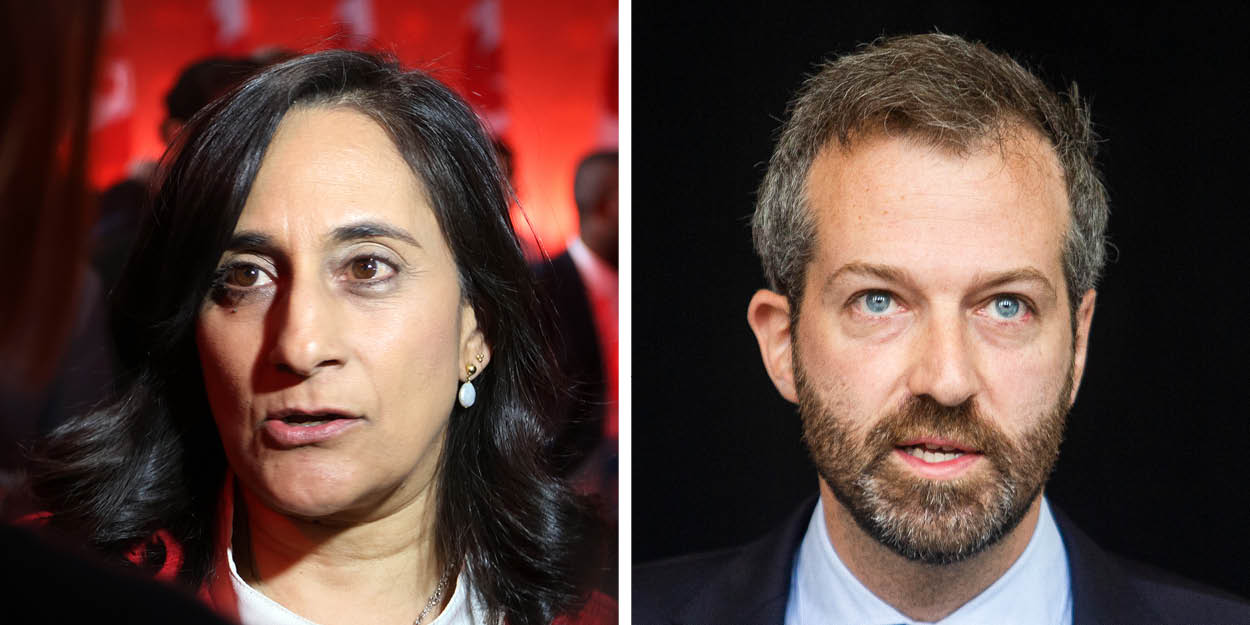Canada taking ‘necessary’ steps to tap into European defence market with new security pacts amid U.S. tensions: observers

The Carney government is weaving new defence alliances across Europe by signing security pacts with NATO allies like Spain and Portugal to allow the exchange of classified military information, and open the door for Canadian firms to compete in European defence contracts. Observers say that while these deals are a “necessary” step, they also come with risks if not implemented properly.
Government Transformation, Public Works, and Procurement Minister Joël Lightbound (Louis-Hébert, Que.) and Foreign Affairs Minister Anita Anand (Oakville East, Ont.) announced the signing of General Security of Information Agreements (GSOIAs) with Portugal on Sept. 16, and Spain on Sept. 9.
“This agreement with Portugal will not only protect the exchange of sensitive information with a trusted NATO ally, it will also open new opportunities for Canadian businesses, support good jobs, and help grow our economies,” Lightbound said in a press release. The minister’s office did not respond to further questions by The Hill Times about the agreement.
GSOIAs create a legally binding framework for the exchange of classified information between the countries involved, including information about authorized contractors and government institutions. They also allow Canadian companies cleared under the Contract Security Program to access classified data necessary to bid on sensitive contracts abroad; and facilitate business opportunities for Canadian companies in sectors such as defence, security, aerospace, maritime, nuclear, and space. They are not related to specific procurements.
Since December 2024, Canada has also signed GSOIAs with Ukraine, Poland, and Japan.
These agreements are negotiated by Public Services and Procurement Canada in collaboration with Global Affairs Canada, and the Department of National Defence.
According to the government, Canada’s bilateral merchandise trade with Portugal exceeded $3.2-billion in 2024, while two-way goods and services trade with Spain totalled $7.9-billion.

Kim Richard Nossal, a professor emeritus in the department of political studies at Queen’s University, told The Hill Times the new security agreements are part of the Carney government’s broader push to diversify its economic and defence relationships so that Canada is not so overly dependent on the United States. This is also reflected in the recent agreement signed with the European Union, Nossal said.
In June, Canada signed a Security and Defence Partnership with the EU, the union’s first such pact with a country in the Americas. At the time, Prime Minister Mark Carney (Nepean, Ont.) said the agreement would “help deliver on capability targets more quickly and economically” for Canada and its allies.
That agreement paved the way for Ottawa to tap into the EU’s $235-billion defence procurement program, Security Action for Europe (SAFE), designed to help countries invest in areas like missile defence, drones, and cybersecurity. It is also part of the massive $1.25-trillion ReArm Europe/Readiness 2030 plan.
The actual impact of the new GSOIAs is unknown, but signing them is a “necessary first step” for a non-EU member like Canada to get its firms qualified to gain access to European-funded defence procurement projects, according to Nossal.
The fact that a number of such agreements have been signed with European countries, as well as with the EU itself, suggests that the Canadian government’s intent is to ensure that there will be comparable agreements across the EU, Nossal said.
“They also have a symbolic purpose: to signal what Canada hopes to achieve in diversification,” said Nossal, noting that many purchasing decisions will depend on the weapons systems Canada will need for its defence in the next decades.
Nicolas Todd, vice-president of government relations and communications at the Canadian Association of Defence and Security Industries, agreed that GSOIAs are necessary preconditions for defence trade to occur.
“It is essential for Canada to sign these agreements with priority EU members for Canadian firms to participate in multinational projects with EU members under the EU’s SAFE initiative, or with NATO members,” he said, explaining that this would help firms understand Canada’s goals, military requirements, and who in government to contact, and would create a “community of interest” among industry partners.
New pacts signal to Europe that Canada is serious in its efforts, say observers
Christian Leuprecht, a defence and national security expert and Royal Military College and Queen’s University professor, said the agreement allows for a more competitive bidding process.

“I am dumbfounded that we did not already have such agreements in place with a major European defence and tech supplier such as Spain. Shows how parochial and short-minded Canadian government thinking has been,” Leuprecht said.
Defence supply chains are highly diversified, especially for high-end tech, so a pivot to “Europe” really means a pivot to the “European Union,” Leuprecht said. This means if Canada wants to procure more European equipment it would need to establish GSOIAs with multiple EU member states.
“At a minimum, it’s a signal to European countries that Canada actually looks serious. The jury is still out on whether this government actually is serious. The BC Ferries deal suggests that it’s not,” Leuprecht said.
BC Ferries, a publicly owned company, awarded a contract to Chinese state-owned shipyard CMI Weihai to build four new ferries, backed by a $1-billion federal loan through the Canada Infrastructure Bank. The House Transport Committee voted in July to study this controversy, and called on now-former transport minister Chrystia Freeland to testify before MPs as new e-mails reportedly revealed her department had notice of the purchase weeks ahead of time.
Describing it as a “misguided ferries buy-Chinese disaster underwritten by a $1-billion federal loan,” Leuprecht said the news “was not missed on the EU.”
“It cost us yet more goodwill among European allies,” Leuprecht said.
Risks with over ‘over-diversifying’

Raquel Garbers, a visiting executive at the Centre for International Governance Innovation and former DND director general of strategic defence policy, said while it is difficult to predict what the impact of these agreements would be, their implementation will matter.
“It strikes me that the prime minister has already cut the strategic deal that we’re going to try and do more things together. The first step to that is ensuring that we can share information, and that’s what those agreements are generally about,” she said.
According to Garbers, the agreements are essentially administrative requirements for moving forward, and it will be up to companies to pursue projects and opportunities to benefit from them.
“Generally, these agreements deal with things like security clearances for personnel, document handling requirements, or cybersecurity. It’s not necessarily industry- or capability-specific,” she said.
Garbers, who is also a visiting practitioner with the U.S. Department of Defense, said that diversification is a great thing, and Canada needs a much more resilient—and a much larger—defence industrial base, but argued that there are risks to over-diversification and an over-pivot that would come with moving away from the U.S. too quickly.
An “over-pivot” of introducing new equipment with different standards and different operating rules could have a negative effect in terms of our ability to defend the continent, she argued, adding that which capabilities and munitions Canada can afford to diversify, and which must stay aligned with the U.S. should be considered.
Those risks include security concerns with countries like China, which Garbers said uses economic warfare to weaken western military capabilities and political will. If European protections aren’t on par with the U.S., Canada might buy weapons that do not work with American systems due to security issues. Reliance on Europe could also jeopardize supply in the event of a conflict, as European countries might prioritize their own defence whereas the U.S. would likely prioritize Canada as part of the North American defence.
Though she warned of those risks generally, Garbers said Carney’s statements so far show that he understands the benefits of diversification as well as the importance of staying tightly connected with the U.S.
“I’m not worried that the prime minister is thinking of over-pivoting. What concerns me is the public commentary where we hear that it’s possible to replace our relationship with the United States with Europe,” she said.
The Hill Times






 LICENSING
LICENSING PODCAST
PODCAST ALERTS
ALERTS













